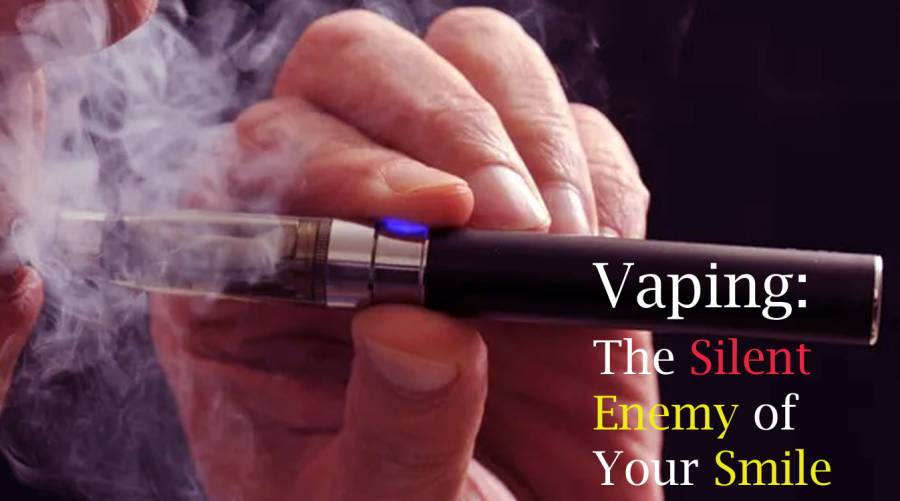
In recent years, a new trend has emerged that has captivated the attention of teenagers and young adults alike: vaping. Vaping, or the use of electronic cigarettes, has rapidly gained popularity as an alternative to traditional smoking. With its sleek designs, enticing flavors, and promises of a "safer" smoking experience, it's no wonder that many individuals have been drawn to this trend. However, what often gets overlooked are the potential consequences that vaping can have on oral health. In this article, we will delve into the impact of vaping on your teeth and gums, revealing the truth behind the trend.
One of the main reasons why vaping is believed to be less harmful than traditional smoking is the absence of tobacco. Traditional cigarettes contain numerous harmful chemicals, including tar and nicotine, which have been linked to a variety of oral health problems such as gum disease, tooth decay, and oral cancer. Vaping, on the other hand, eliminates the combustion process that produces these harmful substances. However, this does not mean that vaping is completely harmless when it comes to oral health.
One of the primary concerns with vaping is the e-liquid or vape juice that is used in electronic cigarettes. These liquids typically contain a combination of propylene glycol, glycerin, flavorings, and nicotine (although nicotine-free options are available). While propylene glycol and glycerin are generally recognized as safe for oral use, the flavorings used in e-liquids can pose potential risks. Some flavorings contain chemicals that can be harmful when inhaled or ingested, and their long-term effects on oral health are not yet fully understood.
Additionally, the act of vaping itself can have negative effects on oral health. The inhalation of the vapor can cause dry mouth, which is a condition characterized by reduced saliva production. Saliva plays a crucial role in maintaining oral health as it helps to wash away food particles, neutralize acids, and prevent tooth decay. When saliva production is compromised, the risk of cavities and gum disease increases. Furthermore, dry mouth can contribute to bad breath and an uncomfortable, parched feeling in the mouth.
Another concerning aspect of vaping is the potential for nicotine addiction. While some individuals may opt for nicotine-free e-liquids, many still choose vape juices that contain nicotine. Nicotine is an addictive substance that can have detrimental effects on oral health. It restricts blood flow, which can impair gum tissue healing and increase the risk of gum disease. Nicotine addiction can also lead to teeth grinding or clenching, which can result in tooth damage, jaw pain, and headaches.
To protect your oral health while enjoying the vaping experience, it's crucial to practice good oral hygiene. Here are some tips to keep in mind:
Brush your teeth at least twice a day with fluoride toothpaste and floss daily to remove plaque and reduce the risk of tooth decay.
Stay hydrated to combat dry mouth by drinking plenty of water throughout the day.
Limit your vaping sessions and consider gradually reducing your nicotine intake if you are using e-liquids with nicotine.
Schedule regular dental check-ups to monitor your oral health and address any concerns or issues that may arise.
Be mindful of the potential risks and make informed decisions regarding your vaping habits. Consider exploring other smoke-free alternatives if you are looking to quit smoking altogether.
In conclusion, while vaping may be perceived as a safer alternative to traditional smoking, it's important to understand the potential impact it can have on your oral health. The chemicals present in e-liquids, the act of vaping itself, and the potential for nicotine addiction all contribute to the potential risks. By maintaining good oral hygiene, staying informed, and making conscious choices.


